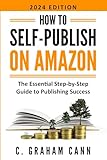The Sentence
The sum total of legitimate words is ours in common with every other writer, but the sentence combinations are our very own, and in the building of our sentences we display our skill or the lack of it.

The word "sentence" is derived from a Latin word meaning to feel, to think; consequently a sentence is the expression of a feeling or a thought. The child first learns to speak separate words, and then coming to recognize the relation of words combines them into sentences.
Good use has sanctioned certain combinations as good, and condemned others as bad. In these approved combinations of words we have an opportunity to exercise our individuality. The sum total of legitimate words is ours in common with every other writer, but the sentence combinations are our very own, and in the building of our sentences we display our skill or the lack of it. Just as an architect may design a beautiful and convenient house of the same material out of which another less skilled would construct a clumsy, awkward affair. The literary architect will gradually accustom himself to view the sentence from three standpoints: its grammatical structure; its literary value; and its essential qualities.
In regard to the first of these, Barret Wendell says, "Putting aside formal grammar, I ask myself of a given construction, whether it makes good sense; if so, I find it is good English." This is a sensible, safe, and surely a simple rule to keep in mind. Its careful application will distinguish the somewhat elusive moods and tenses; the correct agreement of number; and definitely place the antecedent of the relative. The solecism, being a violation of good use, can have no place in the work of any one who aims to write for the press, while the idiom, being a recognized irregularity of construction, may be tolerated.
Upon the literary value of the sentence, depends much of the effectiveness of writing. The periodic sentence involves the principle of suspense and art of "climax." Abbott briefly sums up the mechanical detail of this principle as: (1) placing the "if-clause" first and not last, in a conditional sentence; (2) placing participles before words they qualify; (3) and by using suspensive conjunctions. When each part of a sentence paves the way for what follows we have true "climax." The opposite of this, "bathos," is only useful when a ludicrous effect is desired.
The loose sentence, admitting of several logical pauses, is especially adapted to narrative, or descriptive writing. The balanced sentence, with its co-ordinate parts, places similarities side by side, or expresses marked contrasts with similar constructions. If there is a choice between long and short sentences, the short, or, at most, the moderately long, will have the preference. All short, give a choppy effect, and all long are wearisome to eye and mind. Study variety.
The briefest summing up of the necessary qualities of the sentence, according to Professor Wendell, are unity, mass, and coherence. To have unity a sentence should group itself around one general idea. If a sentence may be resolved into a single subject and predicate with their legitimate modifiers, it has unity. Short and periodic sentences are especially capable of unity. The massing of the sentence words must do for the eye what vocal pauses and emphasis do for the ear. As the self-evident position of emphasis is at the end of the sentence, the same author says: "End with words that deserve distinction." The coherence is good if there is no chance of mistaking the relation of a word to its neighbors. If there is any such chance the sentence is incoherent. Transitory sentences must of necessity be short, being merely connecting links of thought.
A most profitable spare hour may be spent by taking some short story written by a master-hand, and examining the sentences with these points in view. What appears to be so flowing and so simple will be found to be the perfection of art; for nowhere more than in sentence-building do the finer mechanics of composition show. It is impossible to make good paragraphs, out of poor sentences.
Read These Next
Selling Books Through Interviews
William A. Gordon and Stephen Schochet are Hollywood authors and storytellers who, between themselves, have done over 600 radio interviews. Although they work independently, they often share information about specific shows and compare strategies for getting booked. Here they share some of the lessons they have learned about selling books and other media through radio interviews.
What is Libel?
A non-lawyer’s explanation of an issue too few first-time non-fiction publishers think about.
Marketing a Hard Sell Book
he book industry knows which titles sell quickly and which titles take longer to sell. Special niche books may be a "hard sell," according to publishing experts. Publishers appreciate the author’s efforts. Have you written a hard-sell book? Your personal marketing efforts may boost sales.







 Self-Publishing for Dummies (For Dummies: Learning Made Easy)
Self-Publishing for Dummies (For Dummies: Learning Made Easy) Self Publishing To Amazon KDP In 2024 - A Beginners Guide To Selling E-books, Audiobooks & Paperbacks On Amazon, Audible & Beyond
Self Publishing To Amazon KDP In 2024 - A Beginners Guide To Selling E-books, Audiobooks & Paperbacks On Amazon, Audible & Beyond Self Publishing To Amazon KDP In 2023 - A Beginners Guide To Selling E-books, Audiobooks & Paperbacks On Amazon, Audible & Beyond
Self Publishing To Amazon KDP In 2023 - A Beginners Guide To Selling E-books, Audiobooks & Paperbacks On Amazon, Audible & Beyond Self-Publishing: The Secret Guide To Becoming A Best Seller (Self Publishing Disruption Book 2)
Self-Publishing: The Secret Guide To Becoming A Best Seller (Self Publishing Disruption Book 2) Write. Publish. Repeat. (The No-Luck-Required Guide to Self-Publishing Success)
Write. Publish. Repeat. (The No-Luck-Required Guide to Self-Publishing Success) How to Self-Publish Your Book: A Complete Guide to Writing, Editing, Marketing & Selling Your Own Book
How to Self-Publish Your Book: A Complete Guide to Writing, Editing, Marketing & Selling Your Own Book How to Self-Publish on Amazon: The Essential Step-by-Step Guide to Publishing Success
How to Self-Publish on Amazon: The Essential Step-by-Step Guide to Publishing Success Self-Publisher's Legal Handbook: Updated Guide to Protecting Your Rights and Wallet
Self-Publisher's Legal Handbook: Updated Guide to Protecting Your Rights and Wallet Self-Publishing Simplified: How to Publish a Book on Amazon KDP for Beginners
Self-Publishing Simplified: How to Publish a Book on Amazon KDP for Beginners How to Publish a Book on Amazon: A Bestseller’s Guide to Self-Publishing, Formatting, and Marketing Using Amazon Ads
How to Publish a Book on Amazon: A Bestseller’s Guide to Self-Publishing, Formatting, and Marketing Using Amazon Ads